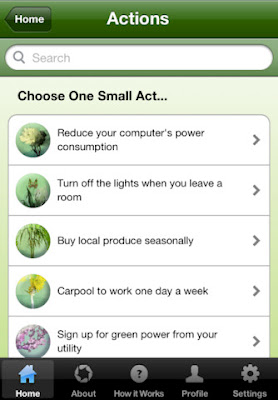
This is a guest column by Brent Hardy of Extra Space Storage.On a recent trip to visit family in Georgia, I noticed a familiar illusion as we sped down a country road. Rows and rows of trees lined up perfectly, deep into what looked to be a forest.Just as that thought struck me, I recalled a short video I encountered recently, called 'A Tree Farm is Not a Forest' (http://www.denveropenmedia.org/project/promos/show/a-tree-farm-not-a-forest). I hadn't done any follow-up research after watching the 30-second clip, apart from a long, "Hmm..." but as I let myself become mesmerized by row after row of perfectly planted pine trees, I decided to look a bit further into the topic.
The E-books vs. paper books debate (http://www.ecolibris.net/ebooks.asp) will likely rage on for years to come, and even the most devoted environmentalist would be foolhardy to call for the complete elimination of paper, a medium that has allowed for most of the progress we've made as a society over the last millennium.Still, every time we pick up a book or magazine, it's important to realize that what we hold in our hands was once a tree. It was cut down and shredded into wood chips, turned to a watery pulp mixture, and then flattened and dried with steam and giant rollers.
In order to manufacturer the paper that we need, tree farms are a necessity. But destroying the few remaining old growth forests we have should no longer even be considered.Logging companies are fond of saying that for every tree they cut down, three are replanted. That may be the case, but a tree farm does not make a forest.
Here's why:- Diversity
In a forest, every acre boasts a wide variety of plant species, each providing shelter and sustenance to different animals. When a mix of pine, oak, magnolia, and bay are all cut down in order to plant one species of pine, what results may still look like a forest, but it's little different from a field of corn.
Some animals may still utilize the new one-species tree farm, but others will be forced to migrate elsewhere (and finding a place to go gets more difficult every day).
- Different Canopy
In a forest, the trees all vary in age. That results in a layered canopy. Light can penetrate in some places, allowing young saplings to grow. Different species can coexist because they're not overwhelmed by a faster-growing competitor that blocks out there light.
In a tree farm, each tree was planted at exactly the same time. They grow at the same pace, creating an even canopy that blocks out light and prevents new species from growing underneath them.
- Different Ground Cover
Decomposing logs are good for a forest. As they breakdown, they provide nutrients back to the soil. Mammals, reptiles and amphibians find shelter in them, and rainwater is absorbed in their decaying wood, slowly releasing water into the soil around them (and helping to slow the spread of forest fires).
In a tree farm, there are rarely rotting logs on the ground. By removing a step in a plant's life cycle, the natural, circular progression of the forest is broken.
- Native Species May Not Be PresentIn Georgia, native longleaf pines have long been replaced with loblolly pines in tree farms, which grow faster and are thus more profitable. While loblolly causes no direct harm to the land it grows on (it's not an invasive species, like eucalyptus, choking out other species around it), its proliferation leaves little room for the longleaf to grow.
When we replace important native species with farmed species, the other plants and animals that rely on the native species lose habitat and disappear as well.
- Different PurposesA forest exists for its own intrinsic value. Humans enjoy them for hiking, camping, and simply getting away from the business of city life.
Tree farms are operated and controlled for profit, just like any other crop. They are planted and cut down at intervals, providing no longevity or diversity.
It's a very simple difference.
In January, the 3,500-year-old Senator bald cypress tree burned to the ground (http://www.nytimes.com/2012/01/21/us/disbelief-still-as-florida-reacts-to-burning-of-3500-year-old-tree.html), a needless accident caused by a careless woman smoking drugs inside the tree.It's a shame, not only for the loss of the tree, but due to the realization that we're not likely to have more trees like the Senator come along. We're still cutting down old growth redwoods on the Pacific coast and in Canada.
In a tree farm, we're raising wood and cutting it down when it's ready. The trees will never become millennia-old behemoths. That's because to grow giant trees, you have to let them live in a forest, and leave them alone.Brent Hardy is the driving force for Extra Space Storage corporate responsibility through energy management and sustainability programs at www.extraspace.com. Brent leads a conversation about sustainability at http://extraspace.com/blog/category/Sustainability.aspx.














